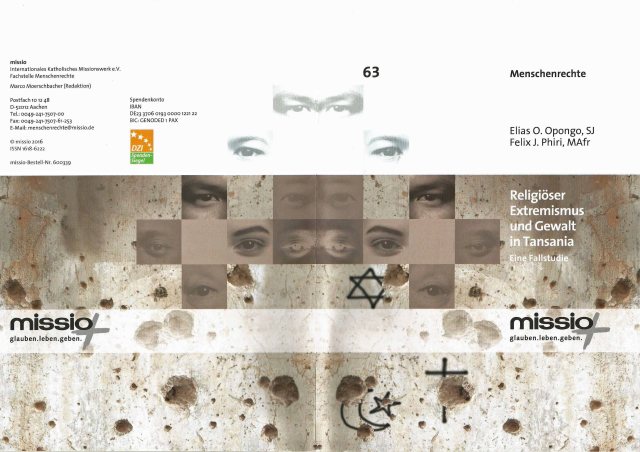 By Elias O. Opongo, SJ and Felix J Phiri, M.Afr
By Elias O. Opongo, SJ and Felix J Phiri, M.Afr
In an extensive and critical research about the present religious situation in Tanzania our confrere Felix Phiri [1], the Director of the Islamic studies in the Tangaza University of Nairobi together with Elias Opongo, SJ, the Director of the Hekima Institute of Peace Studies in Nairobi have published a case study about the increasing religious extremism and violence in Tanzania which was proposed and financed by MISSIO Germany.
The authors analyse the situations of conflict in the country: their historical background which evolved into the recent increasing tensions between Moslems and Christians. Through their intensive interaction with Christian and Muslim believers the authors show the many causes of growing radicalism and violence on both sides and the various supports they get for their activities.
But they also outline possible solutions to a peaceful coexistence of the two main religions in the country where approximately 45% are Moslems, 35% Christians and 20% followers of Traditional Religion.
The findings of this research are to a large extent also relevant in looking for a peaceful and hoped for resolution in similar situations in other African countries.
The German edition of this Research is published under “Menschenrechte”, “Religióser Extremismus und Gewalt in Tanzania”. Both the German and the English editions are published by MISSIO Aachen 2016. (ISSN 1618-6222).
[1] Currently the new Provincial of the Southern Africa Province (SAP).


